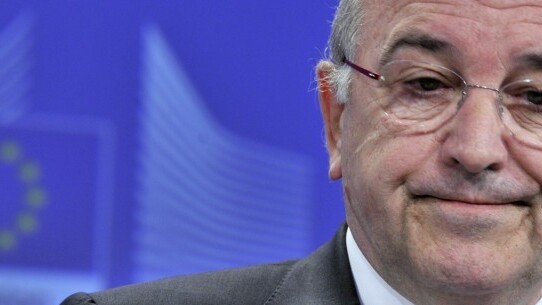
Google’s long-running antitrust case with the European Commission is finally coming to a close. The technology company has agreed to prominently display at least three of rival services whenever a search result returns a link to one of its own services, such as Google Shopping or Gmail.
The Commission said these restrictions would apply to all of Google’s existing search tools, as well as the design and layout for future services that it creates.
“The new proposal obtained from Google after long and difficult talks can now address the Commission’s concerns,” European Commission Vice President Joaquín Almunia said. “Without preventing Google from improving its own services, it provides users with real choice between competing services presented in a comparable way.”
The case was opened in November 2010 after Google was criticised for displaying links to its own services, such as Google Shopping, too prominently in users’ search results. In addition, links to rival products and services are being buried further down the page, which is restricting competition across the Web.
In truth, Google had agreed to most of these terms in April last year. The firm also agreed to label all promoted links for its own specialized search results over a five-year period. Over a similar timeframe, the company said it would be willing to give other companies the option to opt-out from having their content used in any of Google’s search products.
The deal was tested with a trial period, but Almunia said there was “very negative” feedback from the market. Google was asked to improve its proposals and while we don’t know exactly what changed, the wording of today’s statement suggests that the company has given up very little ground.
That’s surprising, given that Almunia suggested in December that Google needed to improve its offer. “The latest proposals are not acceptable in the sense that they are not proposals that can eliminate our concerns regarding competition,” he told the Spanish radio station ‘Radio Nacional de España‘.
Google’s compliance will be reviewed by an independent body, but the commitments are only binding for the next five years – the same time frame that the company originally put forward in April.
As part of its agreed commitments, Google will also stop asking publishers to sign exclusivity agreements for displaying ads in its search results. In addition, it will also remove any restrictions that stop search advertising campaigns from being shown on any of its rivals’ search engines and services.
There is now a chance for those who originally complained about Google’s search services to react to the terms of the settlement. Depending on the feedback, the European Commission will decide whether or not to make the commitments legally binding. For a case that began back in Nov
Image Credit: GEORGES GOBET/AFP/GettyImages
Get the TNW newsletter
Get the most important tech news in your inbox each week.




